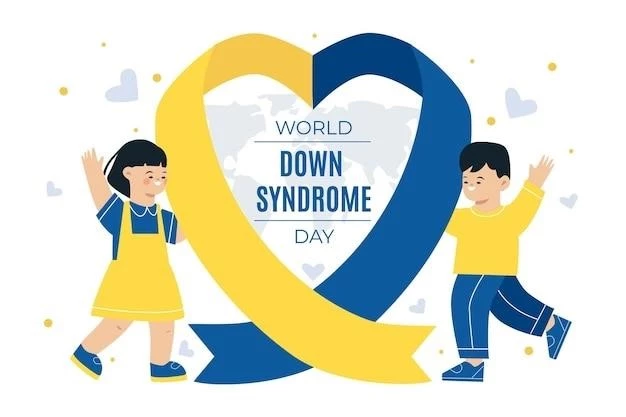Milner-Khallouf-Gibson Syndrome⁚ A rare recessively inherited genetic disorder with various symptoms typical of Fanconi anemia.
Overview of the Rare Genetic Disorder
Milner-Khallouf-Gibson Syndrome is a rare genetic disorder known for its inherited nature and the typical symptoms akin to Fanconi anemia. The syndrome presents a range of manifestations, including microcephaly, short stature, slow growth, beak nose, micrognathia, skin dyspigmentation, and forearm and thumb dysplasia. Despite its rarity, ongoing research and medical support are crucial for individuals affected by this complex genetic condition.

Symptoms of Milner–Khallouf–Gibson Syndrome
Common symptoms of Milner-Khallouf-Gibson Syndrome include microcephaly, short stature, slow growth, beak nose, micrognathia, skin dyspigmentation, and forearm and thumb dysplasia.
List of Common Symptoms
Common symptoms of Milner-Khallouf-Gibson Syndrome include microcephaly, short stature, slow growth, beak nose, micrognathia, skin dyspigmentation, forearm and thumb dysplasia. These manifestations characterize the unique nature of this rare genetic disorder.
Diagnosis and Treatment
Diagnosis of Milner-Khallouf-Gibson Syndrome involves identifying key symptoms like microcephaly, short stature, slow growth, beak nose, and thumb dysplasia. Treatment may include symptom management and supportive care tailored to individual needs.
Methods for Diagnosing Milner–Khallouf–Gibson Syndrome
Diagnosing Milner-Khallouf-Gibson Syndrome typically involves identifying physical characteristics such as microcephaly, short stature, beak nose, and skin dyspigmentation. Additional tests and genetic analysis may be necessary for a conclusive diagnosis.
Available Treatment Options
Treatment options for Milner-Khallouf-Gibson Syndrome may include symptom management and supportive care tailored to the individual’s needs. As a rare genetic disorder, specialized medical intervention and ongoing support are essential components of the treatment plan.
Genetic Inheritance and Risk Factors
Milner-Khallouf-Gibson Syndrome is a rare genetic disorder inherited recessively, characterized by symptoms typical of Fanconi anemia.
Understanding the Recessive Inheritance Pattern
In Milner-Khallouf-Gibson Syndrome, the recessive inheritance pattern signifies that both parents carry a copy of the mutated gene, resulting in each child having a 25% chance of inheriting the disorder. This genetic predisposition underlines the importance of genetic counseling and testing for at-risk families.
Research and Recent Developments
Ongoing research on Milner-Khallouf-Gibson Syndrome aims to understand the genetic basis and potential treatment options for this rare disorder. Stay updated on the latest developments in the field to better support affected individuals.
Current Studies and Findings
Research on Milner-Khallouf-Gibson Syndrome is ongoing, focusing on understanding its genetic basis, unique symptoms, and potential treatment modalities. Stay informed about the latest studies and findings to support advancements in managing this rare genetic disorder.
Support for Patients and Caregivers
Connect with support groups to access valuable resources and share experiences with others affected by Milner-Khallouf-Gibson Syndrome.
Connecting with Support Groups
Engage with support groups dedicated to Milner-Khallouf-Gibson Syndrome to gain valuable insights, resources, and emotional assistance for both patients and caregivers navigating this rare genetic disorder.
Related Syndromes and Disorders
Milner-Khallouf-Gibson Syndrome shares characteristics with conditions like Mitochondrial Myopathy with Lactic Acidosis and Morillo-Cucci Passarge Syndrome.
Comparison with Other Genetic Conditions
Milner-Khallouf-Gibson Syndrome shares similarities with related conditions such as Mitochondrial Myopathy with Lactic Acidosis and Morillo-Cucci Passarge Syndrome, highlighting the complexity of genetic disorders and the need for comprehensive research and management strategies.
Impact on Patients’ Lives
Individuals with Milner-Khallouf-Gibson Syndrome face challenges such as microcephaly, short stature, and other characteristic symptoms impacting their daily lives and overall well-being.
Challenges Faced by Individuals with Milner–Khallouf–Gibson Syndrome
Individuals with Milner-Khallouf-Gibson Syndrome encounter challenges such as microcephaly, short stature, slow growth, beak nose, micrognathia, skin dyspigmentation, forearm and thumb dysplasia, affecting their daily lives and overall well-being.
Prognosis and Long-Term Outlook
Understanding the predicted course of Milner-Khallouf-Gibson Syndrome is essential for patients and caregivers to navigate the challenges associated with this rare genetic disorder.
Understanding the Predicted Course of the Syndrome
Patients and caregivers should be aware of the expected progression of Milner-Khallouf-Gibson Syndrome to better manage the long-term impact and challenges associated with this rare genetic disorder.
Learn more about Milner-Khallouf-Gibson Syndrome and related rare disorders from resources like the Genetic and Rare Diseases Information Center (GARD) to access valuable information on symptoms, diagnosis, and management strategies.
Genetic and Rare Diseases Information Center Insights
Learn more about Milner-Khallouf-Gibson Syndrome and related rare disorders from resources like the Genetic and Rare Diseases Information Center (GARD) to access valuable information on symptoms, diagnosis, and management strategies.
Participate in awareness campaigns to shed light on Milner-Khallouf-Gibson Syndrome and raise advocacy for individuals affected by this rare genetic disorder.
Rare Disease Day Initiatives
Participate in awareness campaigns to shed light on Milner-Khallouf-Gibson Syndrome and advocate for individuals impacted by this rare genetic disorder.
Involvement in investigational studies is crucial to advance the understanding and treatment options for Milner-Khallouf-Gibson Syndrome.
Clinical Research and Trials
Participating in investigational studies is crucial to further understanding Milner-Khallouf-Gibson Syndrome and exploring potential treatment options for this rare genetic disorder.

Support Organizations and Resources
Access support organizations and resources to find financial assistance and aid for individuals affected by Milner-Khallouf-Gibson Syndrome.
Finding Financial Assistance and Aid
Explore support organizations and financial resources tailored to assist individuals managing Milner-Khallouf-Gibson Syndrome, ensuring access to necessary aid for coping with the challenges posed by this rare genetic disorder.
Understanding the importance of specialist healthcare providers in managing Milner-Khallouf-Gibson Syndrome is vital for effective care coordination and holistic treatment approaches.
Medical Professionals and Care Coordination
Specialist healthcare providers play a crucial role in the effective care coordination and comprehensive treatment approaches for individuals with Milner-Khallouf-Gibson Syndrome.
Future Directions in Understanding Milner–Khallouf–Gibson Syndrome
Stay informed about advancements in research and treatment modalities to enhance comprehension and management strategies for Milner-Khallouf-Gibson Syndrome.
Advancements in Research and Treatment Modalities
Staying informed about ongoing advancements in research and treatment modalities is vital to enhance understanding and management strategies for individuals with Milner-Khallouf-Gibson Syndrome.
